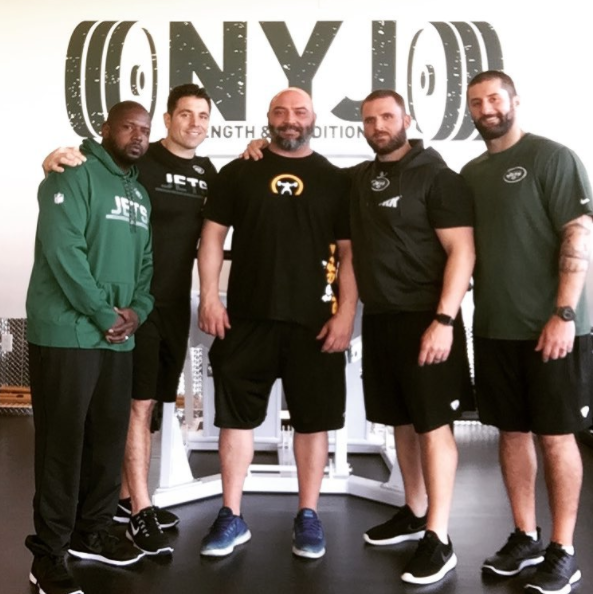
I recently spoke with a coaching friend I have not heard from in a long time. It was great catching up, and we talked different philosophies, shooting ideas back and forth. The subject of career advice came up. I asked what his ultimate career goal was and the coach said, “I just want to build it here where I am. I love the place and my athletes, and I just want to make it better.”
It took me a moment because everyone I talk to is always looking for the next best thing. They always think that this place or that place is better than the one they are at. They think the next place will not have the same problems or issues they currently have — they expect more money, gear, prestige, you name it.
If I could just coach at that school with those athletes they have, we would win every game. That guy has got to be making tons of money. If I had a staff that size...
It goes on and on and on. We are in a business that is perceived as a competitive one, but as a great NFL GM once told me, “It is all just musical chairs, and hopefully we have one when the music stops playing.” That is the truth. I know that everyone wants to work their way up; everyone wants to be the head strength coach at a school that has a realistic opportunity to compete for a national championship. Everyone wants to be at that level and all the trappings that come with it.
That is a great goal to have, but I don’t think enough people put the right kind of plan in place to do so. You are not going to get there jumping from job to job. Realistically, there are really three ways for you to move up the ladder.
The first way is the most surefire way to make it happen, even though your chances are very slim. By sheer luck you find yourself working with the next hot head coach at a smaller school, he hits it big, and takes you with him. Best case scenario for sure.
The second way is from the self-promoters — those who get jobs off of posting workouts on various social media forums, can’t say a word without saying hashtag in front of it, are adept at “networking,” and spend more time visiting and calling others than they do improving their own athletes. This is the least effective way to get that next job, but it does work for some. I am not against this at all, but if you want to visit or call, don’t make it one-sided. My advice: have something on the table for the person you are visiting. It can be knowledge, some cool way you do things, or anything else that shows you are engaged and not there to “check off your list” that you visited that guy and will call him for a reference down the road after a one-minute, one-sided phone call. This profession has no problem helping others, but it can spot a bullshitter a mile away. Don’t be that guy.
The third way, which takes the longest for sure but is the most rewarding, is to do the best job possible where you are. Coaches that don’t know you want to see your body of work. That is how it goes. If you spent all your time improving your current situation and making it the best that it can be, good things will come. If your goal is to work at a Division I school and you are at a Division III school, act and do everything like it is Division I. You may ask questions like, "How do I do that without the money and staff they have at that school?"
You don’t need money to coach your ass off, hold players accountable, or run an efficient weight room. So what if you have to sweep and wipe down your own weight room to make it look nice? Who cares that you may have to upholster a bench or keep your plates from rusting? Does it matter that you may have to have 7 PM workouts to get your athletes there in the summer? To treat the entire athletic staff in a first class manner? No, because everything you do to run your program in a first-class Division I manner is an investment in your future. You do a great job and they will find you.
Do you know how many coaches, athletes, scouts, and administrators are connected? In reality, almost any two people in college athletics are, at most, three degrees of separation from one other. They all talk, and do you know how many strength coaches they know or represent? All of them. If you are not doing things in a first-class manner, they will notice and you will be just another strength coach in a sea of strength coaches.
This goes for high school strength coaches as well. I got my first college job because of asbestos removal. I was working at a high school that had a lot of success, and one summer they were removing asbestos from the weight room and we could not use it. So I had the players take all the plates, bars, benches, dumbbells, and almost everything we had, and put it in a small old storage shed we had next to our track. Every day we would take everything out of that shed, do our workout outside, and then put it back. Two to four players would get the bar up in the air and hold it for squat racks, and they would keep rotating until squats were done.
We never missed a beat, and one day a college coach stopped by to drop off some fliers for a camp they were running and saw us working out and then putting everything away. He was so impressed how we did things, making the best with what we had in the situation we were in, that he went back to his head coach and told him. I was hired a couple of months later.
Remember, there are at least 300 people certified every year, not a lot of jobs if any openings, and the people that have them are not going to give them away. An old strength coach is about 48 years old, so there are not coaches retiring every year for job openings. If you are lucky enough to have one, mark where you are with an X, make it your treasure, and good things will come. Good luck this off-season.












1 Comment